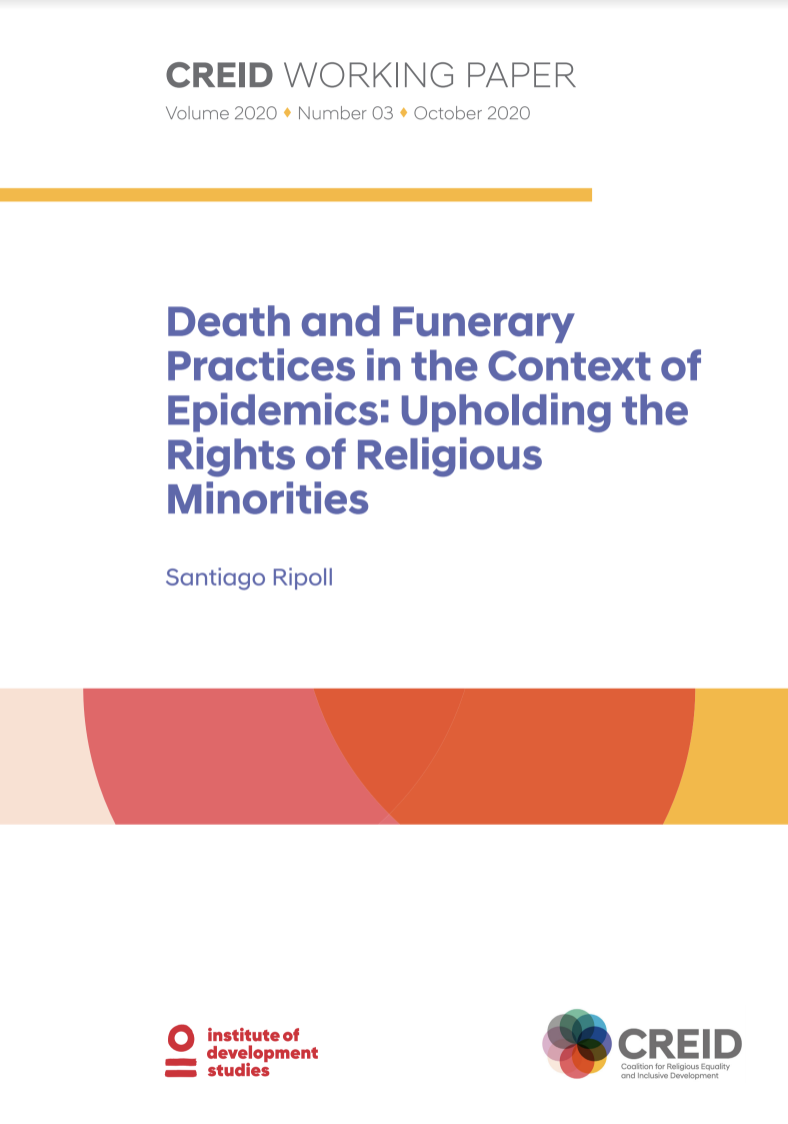Death and Funerary Practices in the Context of Epidemics: Upholding the Rights of Religious Minorities
Description
This working paper explores the challenges that emerge when public health measures to
mitigate the risk of infection during an epidemic infringe on the rights of religious
communities to say a final farewell to their loved ones according to their custom. The
paper aims to answer these questions: how does epidemic response in the context of
death and burials frame and impact religious minority rights? And in turn, how do
sectarian dynamics reposition themselves in the context of epidemic response?
The author explores the conflict between biomedical understandings of death and funerary practices
within epidemic responses, and religious minorities’ freedom of belief and practice. I show
how epidemic response is a secular project, and how its latent religious values linked to
the creation of the nation-state generate particular dominant discourses of what is
appropriate in death-related policies during epidemics. He also explores how relationships
between dominant and minority religions, and other social dimensions, may shape the
negotiation of ‘safe and dignified burials’.
The author draws on the experiences of religious and ethnic minorities in different epidemics in the
past (Ebola and plague) when faced with emergency funerary measures that were
against their religious practice. He also includes Covid-19 as a case study, as evidence is
emerging not only of competition between public health goals and religious rights, but
also about positionings of power between ethnic and religious majorities and minorities.
Additional languages

DETAILS
Publication
Authors
Emergency
Scope
Language
Keywords

